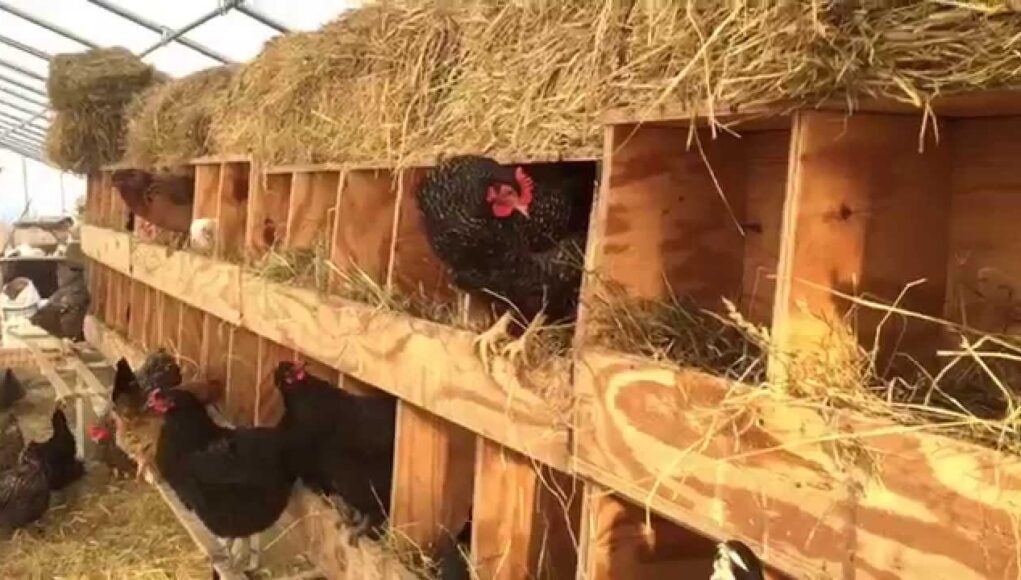When it comes to raising healthy and happy chickens, one of the most important aspects to consider is the type of bedding used in their nesting boxes. Opting for organic bedding for chicken nesting can make a significant difference in the well-being of your flock. This choice not only benefits the chickens but also contributes to a more sustainable and eco-friendly farming practice.

Benefits of Organic Bedding
Organic bedding is made from natural materials, free of chemicals and synthetic additives. This means it’s safer for chickens, reducing the risk of exposure to harmful substances. Additionally, organic materials tend to be more biodegradable, which helps in maintaining a cleaner environment.
Healthier Living Conditions
Chickens are sensitive creatures, and their respiratory systems can be easily irritated by dust and chemicals found in non-organic bedding. By using organic options, you minimize the chances of respiratory issues and other health problems.
Improved Egg Quality
The quality of eggs can be directly affected by the chickens’ environment. Cleaner, toxin-free bedding results in healthier eggs, which is particularly important if you’re selling them or consuming them yourself.
Types of Organic Bedding
There are several types of organic bedding options available. Popular choices include straw, hay, and wood shavings. Each type has its benefits, so it’s crucial to choose the one that best suits your needs and the needs of your chickens.
Straw and Hay
Straw and hay are traditional choices for nesting boxes. They are highly absorbent and provide excellent insulation, keeping the chickens warm during colder months. However, they need to be replaced regularly to prevent moisture buildup.
Wood Shavings
Wood shavings, especially from softwoods like pine, are another great option. They are absorbent and help in controlling odors. Ensure that the shavings are free from additives and chemicals to maintain the organic nature of the bedding.
How to Implement Organic Bedding
Implementing organic bedding is relatively straightforward. Start by cleaning out the existing bedding from the nesting boxes. This ensures that the new bedding is not contaminated. Spread the organic material evenly and ensure it’s fluffy to allow chickens to make comfortable nests.
Regular Maintenance
To keep the bedding effective, it’s essential to maintain it regularly. Remove any soiled bedding and replace it with fresh material. This practice helps in controlling parasites and keeps the environment hygienic.
Environmental Impact
Choosing organic bedding goes beyond the immediate benefits to your chickens. It also has a positive impact on the environment. Organic materials decompose more quickly and can often be composted, reducing waste and contributing to soil health.
Composting Used Bedding
Used organic bedding can be an excellent addition to your compost pile. It adds carbon to the compost, aiding in the decomposition process. This not only recycles waste but enriches your soil, making it more fertile for future plantings.
Cost Considerations
While organic bedding may be slightly more expensive upfront, the long-term benefits often outweigh the costs. Healthier chickens mean fewer veterinary bills, and better egg quality can lead to higher profits if you’re selling eggs.
Finding Affordable Options
Look for local suppliers who offer bulk purchases of organic materials. This can significantly reduce costs. Additionally, consider growing some of your own bedding materials if you have the space and resources.
Conclusion
Choosing organic bedding for chicken nesting is a smart, sustainable choice that benefits both your chickens and the environment. By opting for natural materials, you ensure healthier living conditions, improved egg quality, and a positive impact on your ecological footprint.
For further insights on chicken care, you might find hen laying signs and nesting box designs helpful. Additionally, visit Backyard Poultry for more ideas.

FAQs
What is the best type of organic bedding?
The best type depends on your specific needs, but straw, hay, and wood shavings are popular choices due to their absorbency and insulation properties.
How often should I change the bedding?
Regular maintenance is key. Check and replace bedding weekly or more often if it becomes soiled or damp.
Can I use organic bedding in all seasons?
Yes, organic bedding is suitable for all seasons. However, ensure that it provides adequate insulation during colder months.
This article contains affiliate links. We may earn a commission at no extra cost to you.











